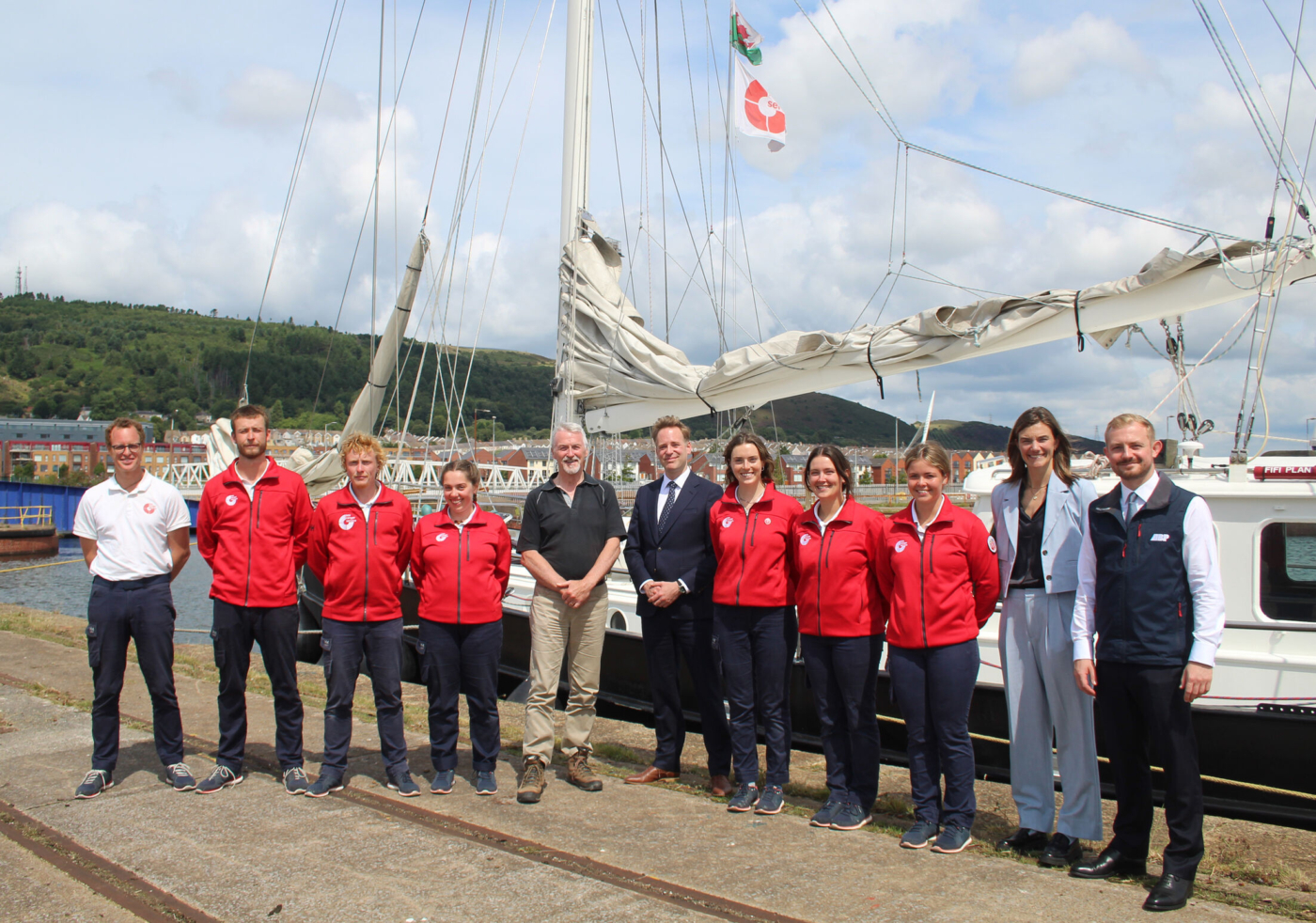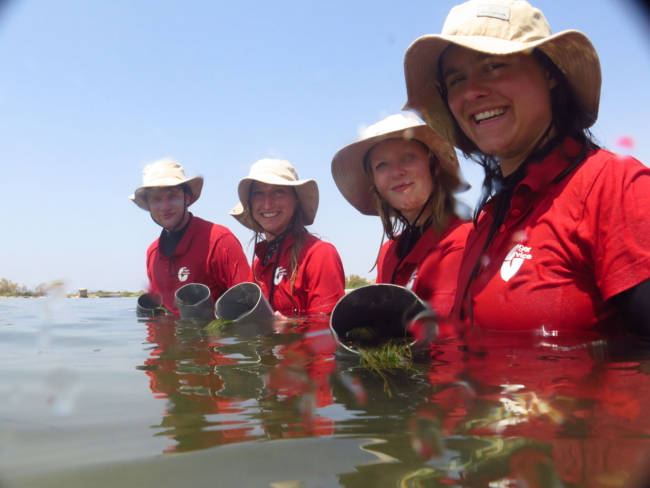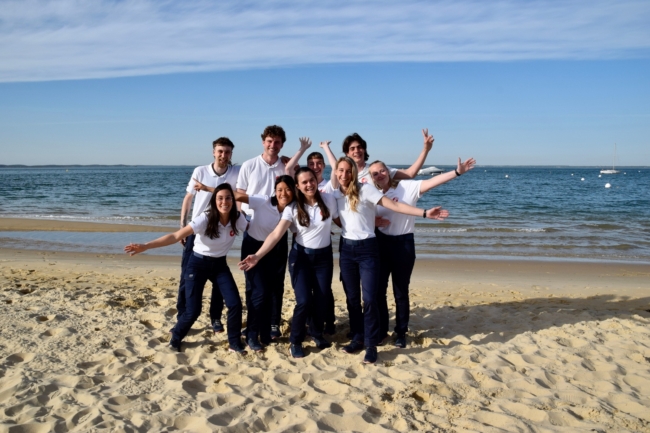Huw Irranca‑Davies, Welsh Deputy First Minister and Cabinet Secretary for Climate Change and Rural Affairs, stepped aboard the Sea Ranger ship SV Fantastiko in Swansea on Wednesday, last week. The visit highlighted the work of young people from South Wales who are trained and employed as full-time Sea Rangers to restore coastal ecosystems, build valuable skills and support climate resilience, directly contributing to the Welsh Government’s priorities around climate action, nature recovery, and offshore wind development.
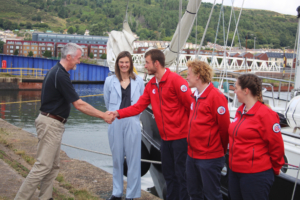
Since launching recruitment and training in Port Talbot in February 2024, the Sea Ranger Service has established a permanent presence in South Wales. Sea Rangers are now actively enhancing biodiversity and ecosystem resilience across the region, while also preparing for careers in the offshore wind sector.
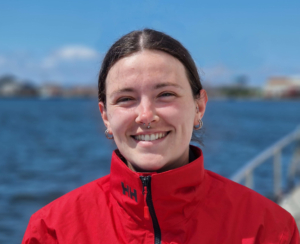
“Serving as a Sea Ranger gives me the chance to make a real difference, learn marine skills and contribute to a sustainable future for Wales,” says Cariad Margetson, a Senior Sea Ranger from South Wales.
The organisation’s focus aligns closely with the Climate Adaptation Strategy for Wales 2024, which promotes nature-based solutions such as saltmarsh and seagrass restoration and coastal habitat enhancement to reduce flood risk and improve carbon sequestration. Sea Rangers act as ‘boots on the ground’ to help deliver these initiatives at scale, supporting existing organisations and accelerating implementation.
Skills development is another shared priority. The Welsh Government’s Offshore Wind Task and Finish Group underscores the significance of building green skills pipelines, working with the education sector and the supply chain to fuel growth in the offshore wind economy. The Sea Ranger Service directly supports this by training youth in seamanship, marine surveying, and coastal habitat management, equipping them for meaningful careers in the blue economy and renewable energy sectors.
In 2024, Sea Rangers began conducting pre-development offshore wind surveys under contract for The Crown Estate, reinforcing Wales’s offshore wind ambitions. With over 15 GW of projects in the pipeline around its coastline, Wales is pursuing nearly £4.8 billion in opportunity and over 3,000 jobs. The work of Sea Rangers helps protect the marine environment on which this industry depends, promoting ocean health and local benefits.
“I welcome the practical dedication of Sea Rangers to accelerate Wales’s nature recovery, climate resilience and skills development. Their hands-on approach strengthens coastal communities and complements our drive for offshore renewable growth,” said Huw Irranca‑Davies, Welsh Deputy First Minister and Cabinet Secretary for Climate Change and Rural Affairs.
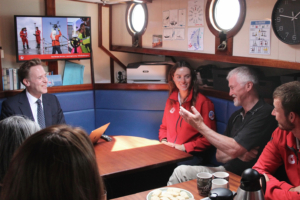
The visit underscored the essential role Sea Rangers play in marine restoration, climate adaptation, skills training, and offshore wind readiness, core pillars of the Welsh Government’s vision for a climate-resilient, nature-rich and skilled coastal future.


